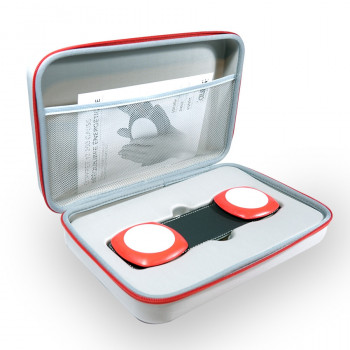 With age, it is natural to experience some memory lapses or to feel that your brain is functioning a little more slowly. But the good news is that it is entirely possible to stimulate your memory and preserve your cognitive abilities in the long term!
With age, it is natural to experience some memory lapses or to feel that your brain is functioning a little more slowly. But the good news is that it is entirely possible to stimulate your memory and preserve your cognitive abilities in the long term!
The brain is an extraordinary and adaptable organ, capable of regenerating itself and creating new neural connections throughout life. All you need to do is adopt a few good habits and provide it with the nutrients and exercise it needs.
Here are the best strategies for keeping your brain sharp and performing well!
Understanding how memory works
Memory is a complex system, which is divided into several types:
- Immediate memory: remembering a telephone number for a few seconds.
- Short-term memory: remembering a recent conversation.
- Long-term memory: keeping memories, knowledge and skills in mind.
With age, certain changes can affect memory, such as poorer blood circulation to the brain, disturbed sleep or lower production of neurotransmitters. Fortunately, these effects can be slowed down or even reversed by adopting the right reflexes.
1. Diet, the brain's fuel
The brain needs specific nutrients to function properly and avoid premature ageing.
The best foods for memory:
- Oily fish (salmon, sardines, mackerel): rich in omega-3, essential for communication between neurons.
- Red berries (blueberries, raspberries): packed with antioxidants that protect the brain from oxidative stress.
- Oilseeds (walnuts, almonds): rich in magnesium and vitamin E, which boost memory.
- Dark chocolate: improves blood circulation to the brain thanks to flavonoids.
- Green vegetables (broccoli, spinach): rich in vitamin K and folate, beneficial for cognitive functions.
To be avoided or limited:
- Refined sugar, which increases brain inflammation.
- Excess alcohol, which impairs neuronal connections.
- Ultra-processed industrial dishes, which are low in essential nutrients.
2. Physical activity, a boon for the memory
Moving your body is also good for your brain! Physical activity promotes oxygenation of the brain, stimulates the production of new nerve cells and improves blood circulation.
The most beneficial sports:
- Fast walking: simple and effective for oxygenating the brain.
- Yoga or tai chi: perfect for concentration and stress management.
- Swimming and cycling: improve coordination and spatial memory.
- Muscle-strengthening exercises: prevent cerebral ageing.
The ideal? To do 30 minutes of exercise a day, even at low intensity.
3. Stimulating your brain: training and games
An active brain is a healthy brain! Stimulating your memory on a daily basis helps to maintain and create new neural connections.
Activities that boost memory:
- Read regularly: novels, newspapers, essays... everything is good for the brain!
- Learn new things: a language, a musical instrument, a manual hobby.
- Play thinking games: crosswords, sudoku, chess, puzzles...
- Write by hand: shopping lists, diary, letters, to strengthen tactile and visual memory.
- Interact with others: conversations stimulate the brain and improve verbal memory.
Tip: Vary your activities and get out of your comfort zone to avoid cognitive routine!
4. Sleep well for a top memory
Sleep is essential for consolidating memories and recharging the brain. A bad night's sleep has a direct impact on memory and concentration.
The keys to restful sleep:
- Go to bed and get up at regular times.
- Avoid screens before going to bed (blue light = enemy of sleep).
- Eat a light dinner to avoid difficult digestion.
- Take a short nap (20 minutes max) during the day if needed.
Good to know: Growth hormone, essential for neuronal regeneration, is released during deep sleep.
5. Stress management: protect your brain from negative effects
Chronic stress releases cortisol, a hormone that slows down memory and damages neurons. Adopting relaxation techniques therefore helps protect your brain.
Effective techniques for reducing stress:
- Deep breathing and cardiac coherence.
- Meditation and mindfulness.
- Creative activities (painting, gardening, music).
- Walking in nature to soothe the mind.
A relaxed mind performs better and retains information better!
6. Magnetotherapy to promote brain balance
Magnetotherapy, which uses magnetic fields to stimulate the body, is sometimes used to promote blood circulation to the brain, improve the quality of sleep and reduce stress. In addition, for overall rebalancing, energy kits provide support for cognitive well-being.
A healthy brain is possible!
Memory and cognitive functions can be preserved at any age through a healthy lifestyle. A balanced diet, regular physical activity, brain exercises and good stress management are the pillars of a brain in top shape.



